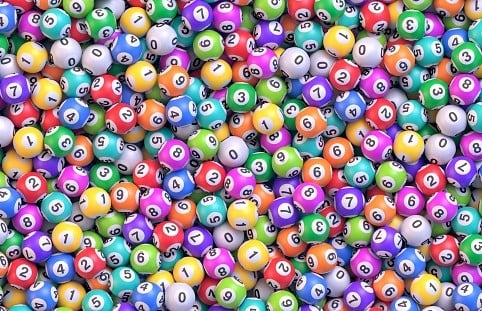You have /5 articles left.
Sign up for a free account or log in.

3d_kot/Getty Images
For decades, a few scholars have promoted the idea as a possible solution to the inequities of competitive college admissions, and we're not talking about affirmative action. We're talking about lotteries.
The idea is not to have a pure lottery, but a lottery open to all applicants who could be expected to succeed at the institutions. The colleges would use minimum grade point averages or SAT/ACT scores to select students who qualify for the lottery, and then use the lottery system to pick members of the incoming class.
In theory, lotteries might produce a more diverse class. After all, there would not be admission spots given to legacy applicants (unless they won the lottery) and other groups of mostly wealthy students. But two researchers who attempted to determine what would happen if lottery admissions were adopted say it would not work in practice.
Dominique J. Baker of Southern Methodist University and Michael N. Bastedo of the University of Michigan conclude that the enrollment of minority and low-income individuals would "drop precipitously" under a lottery system, and so would the enrollment of men. Their paper, "What If We Leave It Up to Chance? Admissions Lotteries and Equitable Access at Selective Colleges," was released today in Educational Researcher.
Baker and Bastedo used several U.S. Department of Education databases with information on students' backgrounds and whether they enrolled in college. They used Barron's data on college selectivity. Then, to figure out who could be eligible for the lottery, they looked at SAT/ACT scores and grades.
They selected "threshold cutoffs to represent the lower bound of students who could potentially enroll, creating pools of students institutions might consider academic fits," they write.
They then modeled a series of lotteries on the students who met the different levels necessary to show their eligibility for the college. They used one lottery for grade cutoffs, one for SAT/ACT score cutoffs and one for both.
"Regardless of the lottery, white and Asian students’ potential share of enrollment drastically increase," they write. "This coincides with a dramatic decrease in the share of Black and Latinx students in eligibility, with only one lottery" producing a different result. "In particular, lotteries that include college entrance exam scores would likely create year-to-year classes that dip into the 1 percent to 4 percent range for Black and Latinx students, far below current enrollment levels."
They add, "We find dramatic and negative potential effects of admissions lotteries on the participation of students of color, low-income students, and men. Using minimum thresholds for both [grade point average] and standardized tests, both together and separately, the participation of students of color and low-income students drops precipitously, in some models to levels below 2 percent of the class. Using a minimum threshold for GPA alone, we find that the proportion of men could drop as low as one-third. These results are consistent across a range of minimum GPA thresholds, weighted GPAs, and standardized tests."
The central problem for those who think lotteries will yield diversity is that lotteries conducted by colleges with competitive admissions would only include a share of the public that meets certain standards. When SAT/ACT scores are added, the problem is most severe.
“Lotteries have been championed as a potential solution for addressing admissions practices at selective colleges that have long favored white and wealthy families, but our simulations find that lotteries could backfire, dramatically reducing the admit rate of students of color or from low-income backgrounds,” said Baker.
Bastedo said, “Our findings show that systematic inequalities in GPAs and standardized test scores will be baked into the results of lotteries. The only way we could see to ensure racial and ethnic diversity in who the lottery admits would be to conduct a lottery within each racial and ethnic group. But this would almost certainly be illegal due to Supreme Court decisions outlawing quotas in college admissions.”
Baker and Bastedo answered a question about whether this experiment made them support affirmative action. “Currently, the best evidence we have shows that, if we care about racial equity, we have to consider race-conscious policies. And lotteries would make it difficult to incorporate those since, lotteries, by their very nature, are not a form of holistic review that is legally allowed to incorporate race,” they said in an email.




